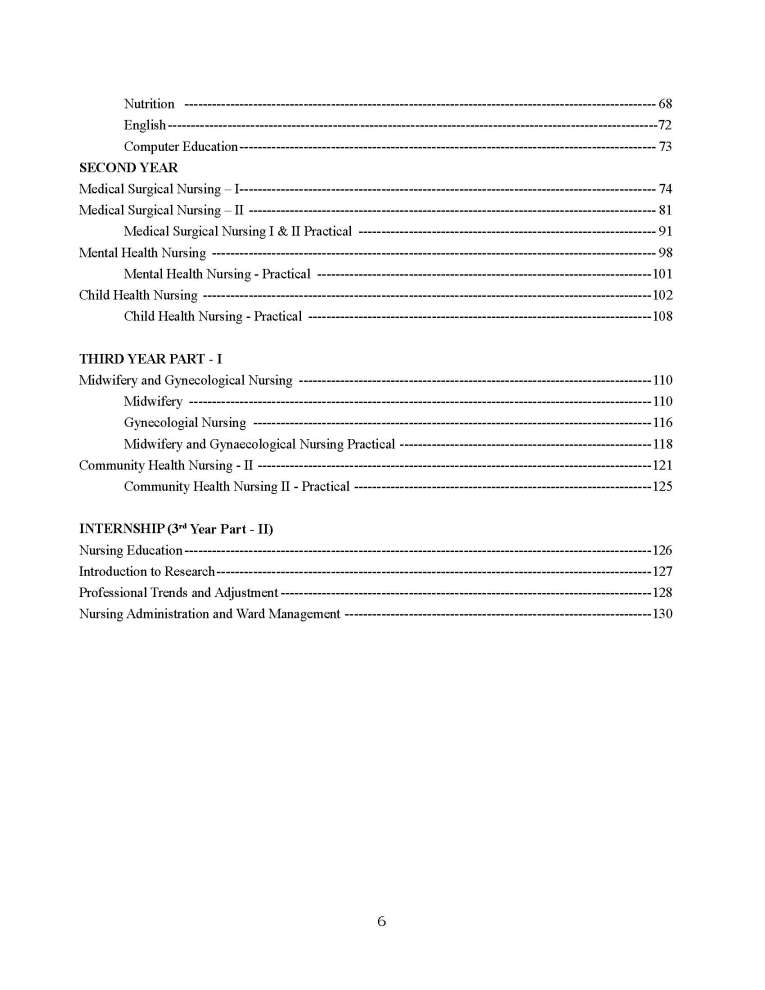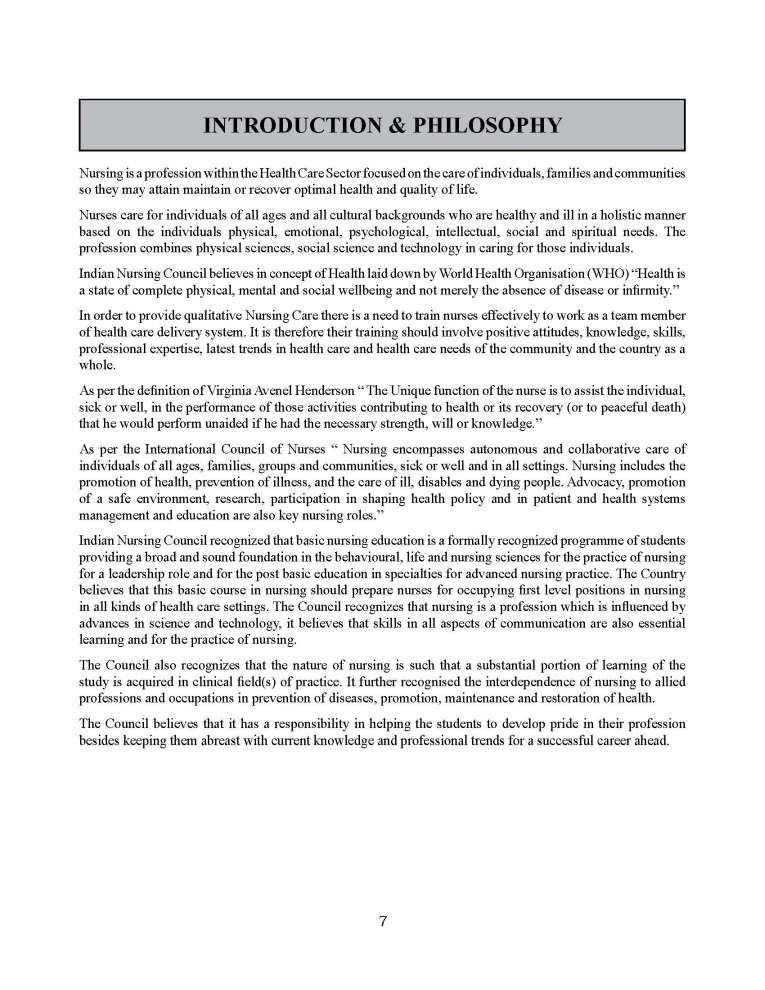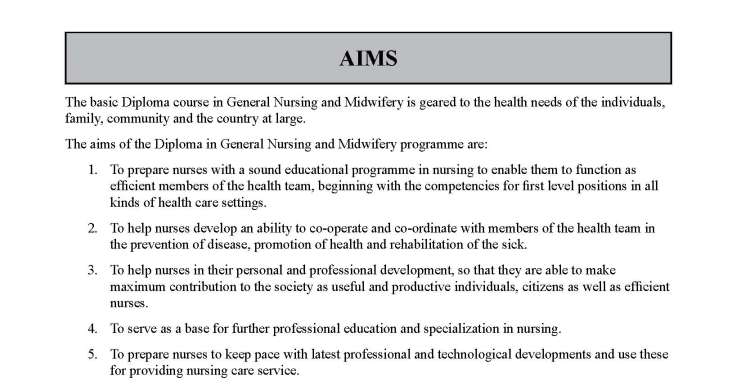|
#6
3rd December 2019, 03:58 PM
| |||
| |||
| Re: GNM Nursing Course Syllabus
The syllabus of Diploma in General Nursing & Midwifery Program offered by Maa Sharda College of Nursing is as follows: BIO-SCIENCE Placement- FIRST YEAR ANATOMY AND PHYSIOLOGY Course Description This course is designed to help students gain knowledge of the structure and function of the human body and recognize any deviation from normal health in order to render effective nursing services. Unit No. 1 Introduction to anatomical terms organization of the human body a) Anatomical terms b) Systems and cavities of the human body Unit No. 2 Introduction to the detailed structure of the body a) The cell: Structure, reproduction and function b) Tissues including membranes and glands : types, structure and functions c) Body cavities and their contents Unit No. 3 Blood a) Composition and formation of blood b) Functions of blood c) Blood clotting, blood grouping and cross matching d) Blood products and their use. Unit No. 4 The Circulatory System a) Heart : Structure, functions including conduction system and cardiac cycle b) Blood vessels : Types, Structure and position c) Circulation of blood d) Blood pressure and pulse Unit No. 5 The Lymphatic system - Structure and function of lymph vessels, Lymph nodes and lymph circulation, lymphatic tissue - spleen and thymus Syllabus Diploma in General Nursing & Midwifery Maa Sharda College of Nursing     Last edited by sumit; 3rd December 2019 at 04:00 PM. |
